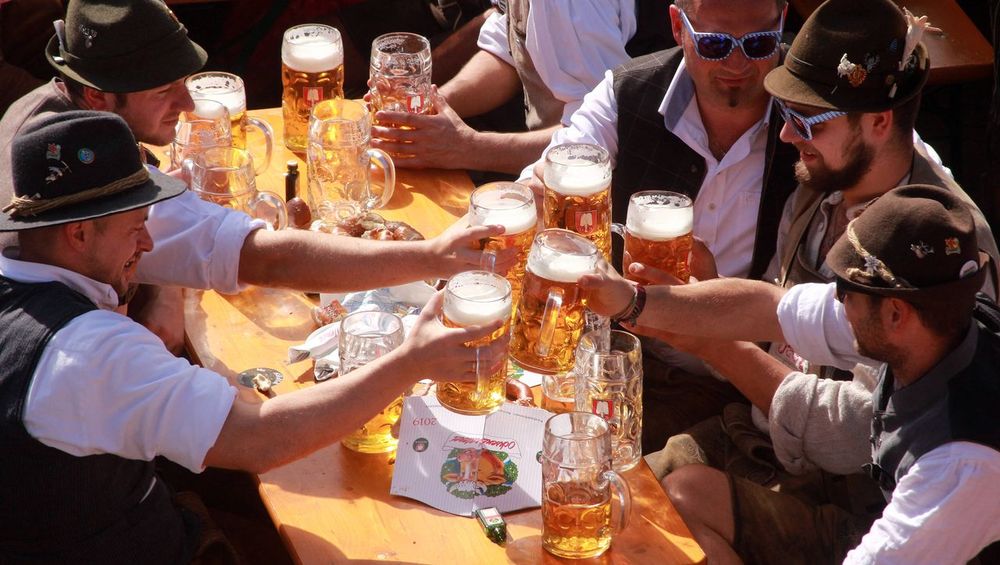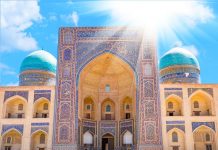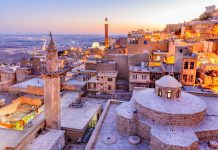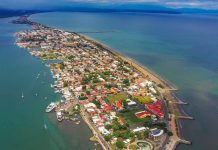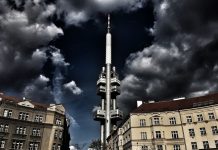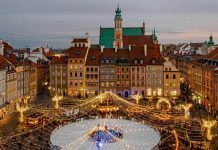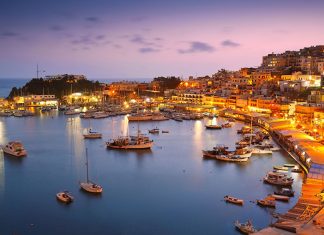Germany probably has more annual festivals than any other European country, with almost every village having its own summer fair, as well as a rich mixture of Christian and pagan festivals that have merged over the ages to fill the whole calendar.
These tend to flourish most in Bavaria, Baden-Württemberg and the Rhineland. In the former GDR, there are far fewer festivals – Communism is by no means entirely to blame for this, the roots lying in the puritanism which has long characterized the area. Since the Wende , a fair number of festivals have been initiated or reinstated.
The most famous German festival is undoubtedly the Oktoberfest in Munich, but Carnival and the Christmas fairs are other annual highlights, and take place all over the country. There’s also a wealth of music festivals , ranging from opera seasons to open-air jazz and rock concerts. A general overview of events is listed below.
January is a quiet month, though there are various events associated with the Carnival season , particularly the proclamation of the Carnival King. Climax of the season comes in February or March , seven weeks before the date nominated for Easter. The Rhenish Karneval tends to have rather more gusto than its Bavarian counterpart, known as Fasching . Cologne has the most spectacular celebrations, followed by those of Mainz and Düsseldorf; in each case, the Rosenmontag parade is the highpoint. Baden-Württemberg’s Fastnet is a distinctive, very pagan, carnival tradition, best experienced in Rottweil. Another old pagan rite is the Schäfertanz held in Rothenburg in March and repeated on several subsequent occasions throughout the year. During Holy Week, and particularly on Easter Day (variable date in March/April), colourful church services are held throughout the country, particularly in rural Catholic areas. Another important April festival is the witches’ sabbath of Walpurgisnacht , celebrated throughout the Harz region on the 30th of the month.
May marks the start of many of the summer festivals . Costume plays such as the Rattenfängerspiele in Hameln begin regular weekend performances, while there are classical concerts in historic buildings, notably the Schlosstheater in Schwetzingen. Every ten years (next in 2010), the famous Passionspiele in Oberammergau begins its run. On a lighter note, there’s the Stabenfest in Nördlingen. Whitsun (variable date in May/June) sees distinctive religious festivals in many towns. On the same weekend, there are two celebrated reconstructions of historic events – the Meistertrunk drama in Rothenburg and the Kuchen- und Brunnenfest in Schwäbisch Hall. Shortly afterwards, Corpus Christi is celebrated in Catholic areas, and is best experienced in Cologne or Bamberg.
June sees important classical music festivals , with the Bach-Woche during the second weekend of the month in Lüneburg, the Händel-Festspiele in Göttingen and Halle, the Schumann-Woche in Zwickau and the Europäische Wochen in Passau, while there’s a big festival of all kinds of music held under canvas in Freiburg. Throughout northern Germany, the shooting season is marked by Schützenfeste , the largest being Hannover’s. Bad Wimpfen’s Talmarkt , which begins at the end of the month, is a fair which can trace its history back a thousand years.
July is a particularly busy festival month, with summer fairs and both wine and beer festivals opening up every week; pick of the latter is that in Kulmbach. Dinkelsbühl’s Kinderzeche and Ulm’s Schwörmontag are the most famous folklore events at this time. The Bayreuth Opernfest , exclusively devoted to Wagner, begins its month-long run during late July, but note that all tickets are put on sale a year in advance and immediately snapped up. A more wide-ranging Opernfest takes place in Munich around the same time.
August is the main month for colourful displays of fireworks and illuminations, such as the Schlossfest in Heidelberg and Der Rhein in Flammen in Koblenz. There are a host of Weinfeste during the month in the Rhine-Mosel area, notably those in Rüdesheim and Mainz, while Straubing’s Gäubodenfest is one of the country’s largest beer festivals. Other important events at this time are the Plärrer city fair in Augsburg, the Mainfest in Frankfurt and the Zissel folk festival in Kassel.
Paradoxically, Munich’s renowned Oktoberfest actually takes place mostly in September – it usually starts on the second last Saturday, but can be the third last. This month sees many of the most bacchanalian festivals, such as Heilbronn’s Weindorf and Bad Cannstatt’s Volksfest . October sees things quietening down, though there’s still the odd Weinfest in the Rhineland, along with the Freimarkt folk festival in Bremen, while in the Alpine region there are a number of religious festivals with an equestrian component; the Colomansfest in Schwangau is the most famous of these. In November , there’s the month-long Hamburger Dom fair in Hamburg, while the Martinsfest on the 10th/11th of the month is celebrated in northern Baden and the Rhineland, most notably in Düsseldorf.
Finally, December is the month of the Christmas market (variably known as Christkindelsmarkt or Weihnachtsmarkt ), which features stalls selling handmade goods of all kinds, from toys and leatherware to sweets and biscuits. Practically every town in the country has one; the most enjoyable are those, such as the ones at Nürnberg and Augsburg, which are most faithful to tradition.

